The Complete Guide to Coconut Sugar: Benefits, Comparisons, and Uses
Coconut sugar has gained popularity in recent years as a natural sweetener that offers a more nuanced flavor and potential health benefits compared to traditional sugars. Derived from the sap of coconut palm flowers, coconut sugar is a versatile and sustainable alternative that can be used in a variety of culinary applications. This guide explores the benefits of coconut sugar, compares it to other sweeteners, and provides tips on how to use it in your kitchen.
Coconut Sugar Benefits
Coconut sugar is often touted for its potential health benefits. One of the most significant advantages is that it is less processed than refined sugars, which means it retains more of the nutrients found in the coconut palm sap. These nutrients include small amounts of minerals like iron, zinc, calcium, and potassium, as well as antioxidants. Additionally, coconut sugar contains inulin, a type of fiber that may help slow glucose absorption, potentially making it a better option for those managing blood sugar levels.
Coconut Sugar vs. Brown Sugar
When comparing coconut sugar to brown sugar, there are some key differences to consider. While both are less refined than white sugar, brown sugar is essentially white sugar with added molasses, giving it its characteristic color and flavor. Coconut sugar, on the other hand, has a more complex flavor profile, often described as caramel-like with subtle earthy undertones.
Nutritionally, coconut sugar has a lower glycemic index (GI) than brown sugar. The glycemic index measures how quickly a food raises blood sugar levels. Coconut sugar’s GI is around 35, while brown sugar’s GI is higher, around 64. This means coconut sugar may cause a slower rise in blood sugar levels, making it a potentially better choice for those concerned with blood sugar spikes.
Coconut Sugar Substitute
Coconut sugar can be used as a one-to-one substitute for white sugar, brown sugar, and other sweeteners in most recipes. This makes it a versatile ingredient for baking and cooking. However, due to its unique flavor, it may slightly alter the taste of your dishes. In recipes where a more neutral sweetness is desired, such as in delicate cakes or certain beverages, you may prefer to use a different sweetener. For those on a ketogenic diet, where coconut sugar may not fit due to its carbohydrate content, other low-carb sweeteners like erythritol, stevia, or monk fruit could be better alternatives.
Coconut Sugar Nutrition
Coconut sugar contains about 15 calories per teaspoon, which is similar to white and brown sugar. However, what sets coconut sugar apart is its nutritional content. Unlike refined sugars that are “empty” calories, coconut sugar contains trace amounts of vitamins and minerals, including iron, zinc, calcium, and potassium. It also provides inulin, a type of dietary fiber that supports gut health and may help regulate blood sugar levels.
Coconut Sugar vs. Cane Sugar
Cane sugar, whether refined or unrefined, is the most common form of sugar used worldwide. When comparing coconut sugar to cane sugar, the primary differences lie in their processing and nutritional content. Cane sugar is often heavily processed, stripping it of most nutrients, whereas coconut sugar is minimally processed and retains more of its natural nutrients. Additionally, coconut sugar has a lower glycemic index than cane sugar, which means it may have a less significant impact on blood sugar levels.
Organic Coconut Sugar
Organic coconut sugar is produced without the use of synthetic fertilizers, pesticides, or genetically modified organisms (GMOs). For those concerned about the environmental impact and health implications of conventional agriculture, organic coconut sugar is a more sustainable and health-conscious choice. It’s widely available at health food stores, specialty grocery stores, and online retailers.
Coconut Sugar Calories
Coconut sugar contains approximately 15 calories per teaspoon, which is similar to other common sugars like white and brown sugar. While the calorie content is comparable, coconut sugar’s richer nutritional profile and lower glycemic index may offer additional health benefits.
Coconut Sugar for Baking
Coconut sugar can be used in a wide variety of baking applications, including cookies, cakes, muffins, and breads. Because it has a similar sweetness level to white and brown sugar, it can often be substituted on a one-to-one basis in recipes. However, its darker color and caramel-like flavor can impart a subtle difference in taste and appearance to your baked goods, which many bakers find desirable.
Where to Buy Coconut Sugar
Coconut sugar is widely available at major grocery stores, health food stores, and online retailers. Popular chains like Walmart, Target, and Whole Foods carry various brands of coconut sugar, often in both conventional and organic varieties. Prices can vary depending on the brand and whether the product is organic, but it generally falls within the same price range as other specialty sugars.
Is Coconut Sugar Healthy?
While coconut sugar is often marketed as a healthier alternative to white sugar, it’s important to remember that it is still a form of sugar and should be consumed in moderation. That said, its lower glycemic index and higher nutrient content make it a potentially better choice for those looking to reduce blood sugar spikes or incorporate more natural sweeteners into their diet.
Coconut Sugar Recipes
Coconut sugar can be used in any recipe that calls for sugar, adding a rich, caramel-like flavor to both sweet and savory dishes. Try using it in oatmeal cookies, caramel sauces, or even as a sweetener in your coffee or tea. Its unique flavor profile can enhance the taste of spices like cinnamon, nutmeg, and ginger, making it an excellent choice for holiday baking.
Coconut Sugar Keto
Coconut sugar is not considered keto-friendly due to its carbohydrate content. Those following a ketogenic diet typically avoid sugars and high-carb sweeteners. Instead, low-carb alternatives like stevia, monk fruit, or erythritol are preferred.
Coconut Sugar Price
The price of coconut sugar can vary depending on the brand and whether it is organic. Generally, it is slightly more expensive than white or brown sugar but comparable to other natural sweeteners like maple sugar or honey. Expect to pay between $5 to $10 for a one-pound bag, depending on the retailer and quality of the product.
Coconut Sugar Glycemic Index
Coconut sugar has a glycemic index of approximately 35, which is lower than white sugar (GI of 65) and brown sugar (GI of 64). This lower GI means that coconut sugar may cause a slower rise in blood sugar levels, making it a better option for those monitoring their blood sugar.
Coconut Sugar vs. Maple Syrup
When comparing coconut sugar to maple syrup, both are natural sweeteners with rich, complex flavors. However, maple syrup is a liquid sweetener, while coconut sugar is granulated, which may influence how each is used in recipes. Maple syrup has a slightly lower glycemic index (around 54) compared to coconut sugar, but both offer a more nuanced flavor and greater nutritional content than white sugar.
Coconut Sugar Walmart, Target, Whole Foods
Coconut sugar is available at major retailers like Walmart, Target, and Whole Foods. These stores often carry both conventional and organic options, allowing you to choose based on your preferences and budget. You can also find coconut sugar online through these retailers or other e-commerce platforms like Amazon.
Best Coconut Sugar
When choosing the best coconut sugar, consider factors like whether it is organic, the brand’s reputation, and the price. Some well-known brands that offer high-quality coconut sugar include Wholesome Sweeteners, Big Tree Farms, and Nutiva. Organic options are often preferred for their environmentally friendly production methods and lack of synthetic additives.
In conclusion, coconut sugar is a versatile, natural sweetener that offers a richer flavor and potential health benefits compared to traditional sugars. Whether you’re using it for baking, cooking, or simply sweetening your coffee, coconut sugar is a delicious and more sustainable alternative that can easily be incorporated into a balanced diet.


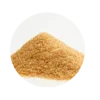
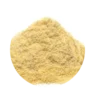
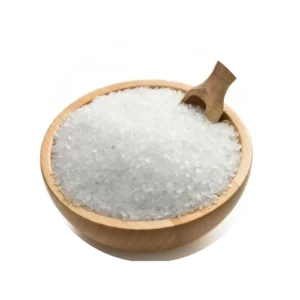


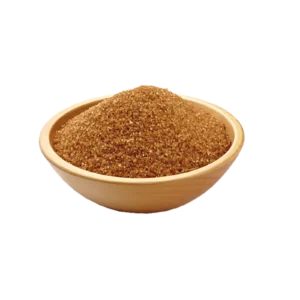
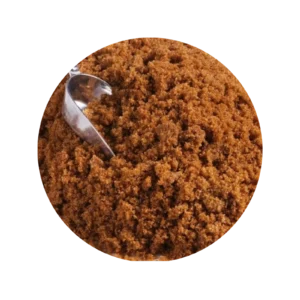
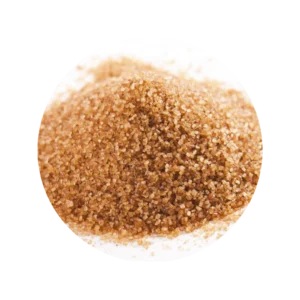
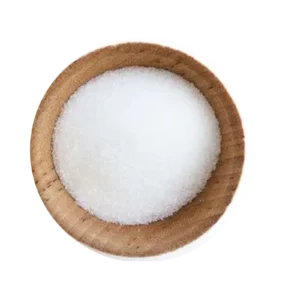
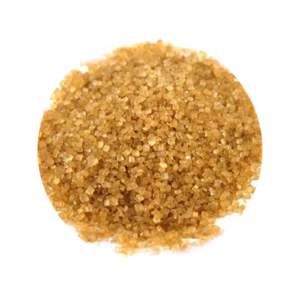
Reviews
There are no reviews yet.